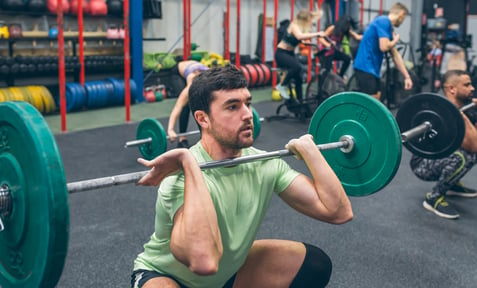 Olympic weightlifting is one of the oldest sports that is still around to this day in the Olympics. Over time the sport has evolved to what it is today, and there are more participants at the national-level events here in the US than ever before. With the help of CrossFit, the weightlifting community has grown substantially in the last decade. Still, however, not many people know of Olympic weightlifting and how to get started in the sport.
Olympic weightlifting is one of the oldest sports that is still around to this day in the Olympics. Over time the sport has evolved to what it is today, and there are more participants at the national-level events here in the US than ever before. With the help of CrossFit, the weightlifting community has grown substantially in the last decade. Still, however, not many people know of Olympic weightlifting and how to get started in the sport.
Who Should Olympic Lift?
Everyone! Olympic weightlifting is for everyone. In a previous blog post, I wrote about the benefits of learning and practicing the Olympic lifts. To sum it up, the benefits are learning a new skill, strengthening the muscles, having goals to work toward, and competing in a fun and welcoming environment. If you are a former athlete and have been missing that competition feeling, weightlifting might be for you. In America, you have the opportunity to lift in small local meets, state meets, larger national meets, and even international competitions if you have what it takes to qualify. The weightlifting community is full of fun, positive, and energetic people who are all there for the same reason. Once you commit to learning the lifts, the next step is to find a coach.
Why You Need a Coach
One of the most important things you can do when starting to learn the Olympic lifts is to find an educated and certified weightlifting coach. Weightlifting has one of the lowest injury rates of all the Olympic sports. However, if you don’t learn proper technique early on, you are more likely to injure yourself. Looking into the future, after proper technique teachings, a coach will give proper programming. A well-thought-out and structured weightlifting program will increase the length of your weightlifting career and ensure proper progressions.
If your goal is to compete in Olympic weightlifting, finding a coach will be crucial to your success not only as you prepare for the competition, but also at the competition. Competitions are fast paced and require more thought than just lifting the weight when it is your turn. There is a lot of planning that happens for competitions, from timing your warmups to counting the number of attempts until you must be on the platform. Having a coach makes the whole experience less stressful for the athlete and makes it go a lot more smoothly. A coach who knows their athletes will be able to motivate and push you to levels you did not know you could reach.
How to Find a Coach
Weightlifting gyms and coaches can be found on USA Weightlifting’s website. You can also do a quick Google search for barbell clubs in your area. You will most likely come across some CrossFit boxes as well. Make sure you find a coach that is certified through USA Weightlifting to ensure you that your coach has gone through the necessary trainings for technique and safety. Just like any other sport, you can be a self-taught lifter. However, learning proper techniques from the beginning will extend your career in the sport.
What Now?
After you have found a certified and experienced weightlifting coach that you trust, it is time to put in the work. Olympic weightlifting is not a sport that you will pick up overnight. It takes hours and hours of intentional practice to master this sport. The athletes at the very top have been training since they were young kids. You should set your goals accordingly and never compare yourself to the athletes that are competing at the highest level. If you trust the process and work hard, you will see progress and become the best version of yourself.
This blog was written by Evan James, NIFS Exercise Physiologist EP-C, Health Fitness Instructor, and Personal Trainer. To learn more about the NIFS bloggers, click here.

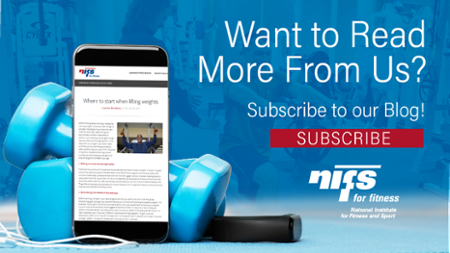
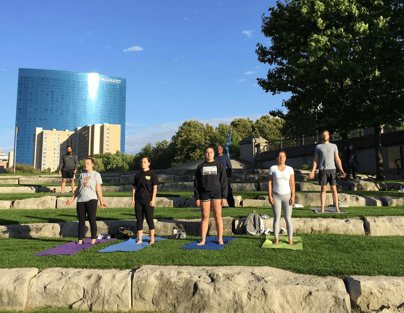 Do you want to be part of a community and hold yourself accountable while working out? Group fitness classes just might have what you are looking for!
Do you want to be part of a community and hold yourself accountable while working out? Group fitness classes just might have what you are looking for! 
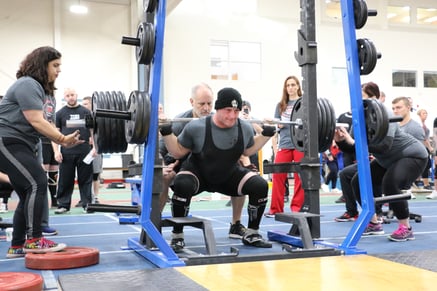 Almost five years ago, the team and I hosted the first ever powerlifting event here at NIFS. Also known as the Iron Triathlon (shirt slogan spoiler alert), the first year was a modest one with 25 athletes competing. This year, the competition registration sold out in just under three days! From our humble beginnings to this year’s event, it’s been a ride. There has been so much hard work, resulting in so many smiles and victories for both the athletes and the crew. We have learned a lot from year one to now, and we have developed from our challenges and gotten better each year.
Almost five years ago, the team and I hosted the first ever powerlifting event here at NIFS. Also known as the Iron Triathlon (shirt slogan spoiler alert), the first year was a modest one with 25 athletes competing. This year, the competition registration sold out in just under three days! From our humble beginnings to this year’s event, it’s been a ride. There has been so much hard work, resulting in so many smiles and victories for both the athletes and the crew. We have learned a lot from year one to now, and we have developed from our challenges and gotten better each year.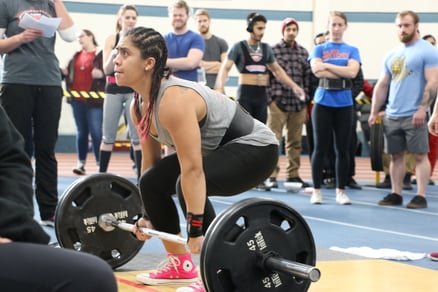 One thing we hear a lot is how inclusive and supportive the environment is on event day. Even though athletes arrive to be victorious over one another, they all support and cheer on each other to do their best. I think the sport of powerlifting is just this way, but I also think the NIFS event intensifies the comradery among these athletes. It sounds corny, but there is something in the air that day, something that reinforces that it’s “WE” and not just “I.”
One thing we hear a lot is how inclusive and supportive the environment is on event day. Even though athletes arrive to be victorious over one another, they all support and cheer on each other to do their best. I think the sport of powerlifting is just this way, but I also think the NIFS event intensifies the comradery among these athletes. It sounds corny, but there is something in the air that day, something that reinforces that it’s “WE” and not just “I.”
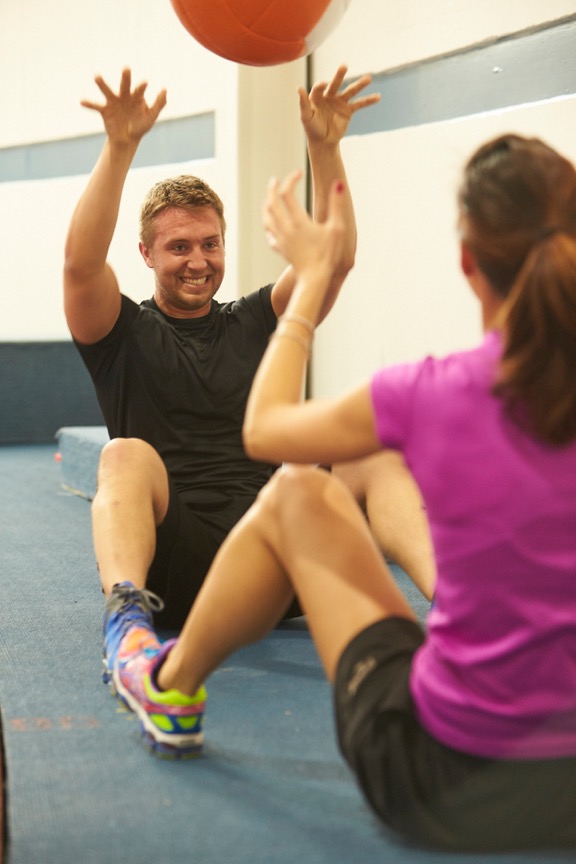 When it comes to working out, the first weeks are usually great. You are excited to get to the gym, and you love the feeling of exercising. Once the “honeymoon” stage of your new workout routine is over, it gets more challenging to get to the gym:
When it comes to working out, the first weeks are usually great. You are excited to get to the gym, and you love the feeling of exercising. Once the “honeymoon” stage of your new workout routine is over, it gets more challenging to get to the gym: 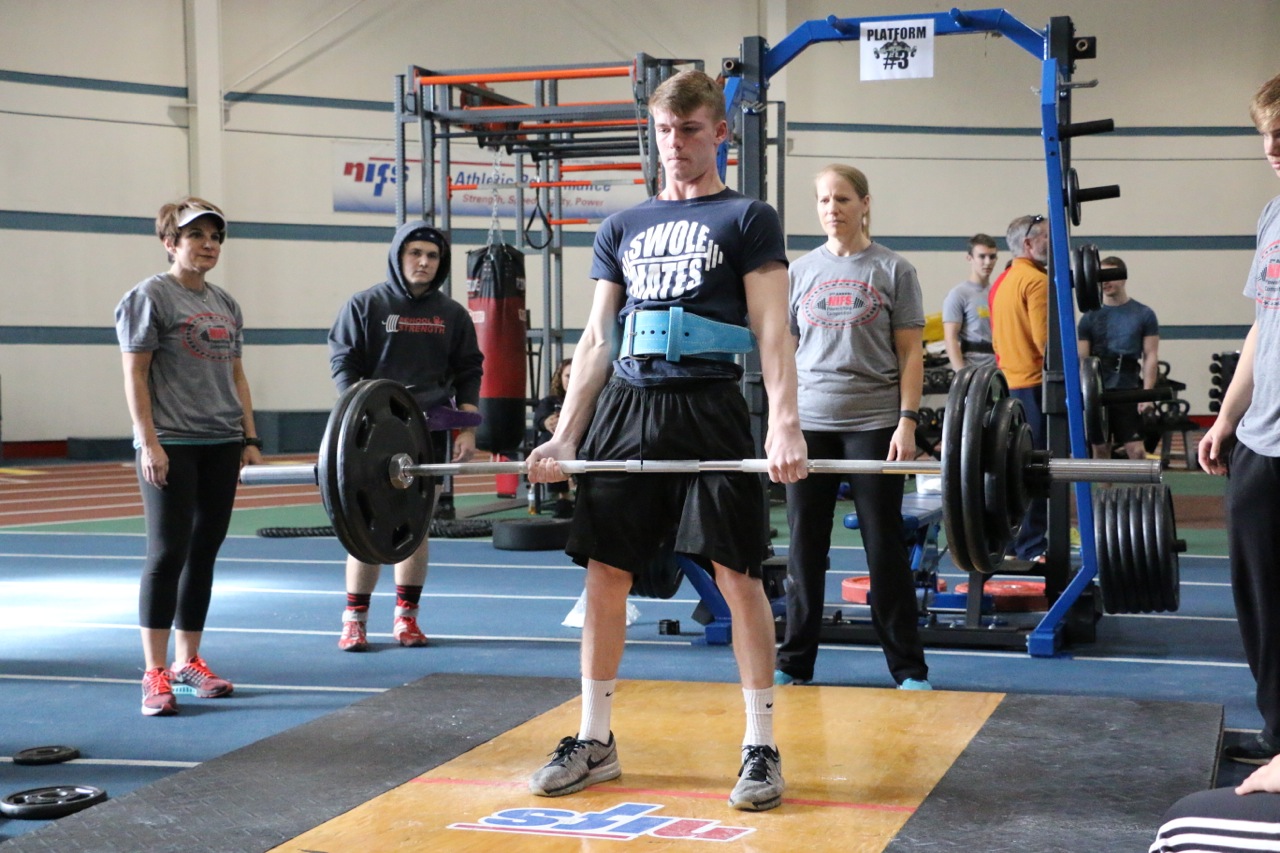 In my previous posts,
In my previous posts,  In my previous post,
In my previous post,  If you are one of the athletes who want to throw their hat into the ring, I want to give you three key principles that will help you be the best you can be on event day for each of the three lifts. Those lifts, of course, are the squat, bench, and deadlift. Today we will focus on the squat. We will get to the other two soon, so keep an eye on the
If you are one of the athletes who want to throw their hat into the ring, I want to give you three key principles that will help you be the best you can be on event day for each of the three lifts. Those lifts, of course, are the squat, bench, and deadlift. Today we will focus on the squat. We will get to the other two soon, so keep an eye on the 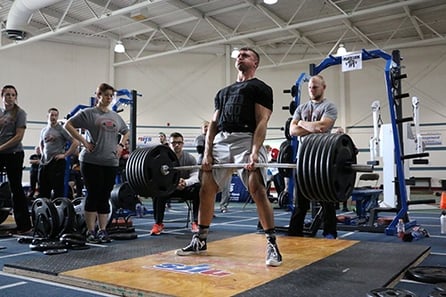 The NIFS 3
The NIFS 3
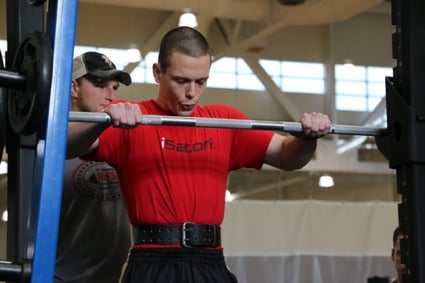 For all you Rocky fans out there (and I am assuming that is all of you), the name
For all you Rocky fans out there (and I am assuming that is all of you), the name 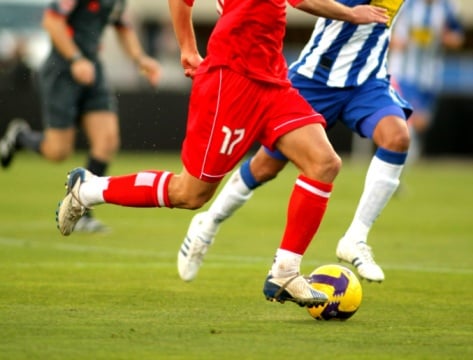 Once the competitive season begins, scheduling time to get in to lift is a lot more difficult due to the practices, games, and travel that are happening. To me, in-season lifting is sometimes undervalued in the competitive/athletic world because of the fact that the primary focus is to win games or matches, not lift weights. However, I believe that this is one of the most important (if not the most important) times during the year because of what lifting can do for the athlete throughout the competitive season and into the off-season.
Once the competitive season begins, scheduling time to get in to lift is a lot more difficult due to the practices, games, and travel that are happening. To me, in-season lifting is sometimes undervalued in the competitive/athletic world because of the fact that the primary focus is to win games or matches, not lift weights. However, I believe that this is one of the most important (if not the most important) times during the year because of what lifting can do for the athlete throughout the competitive season and into the off-season.